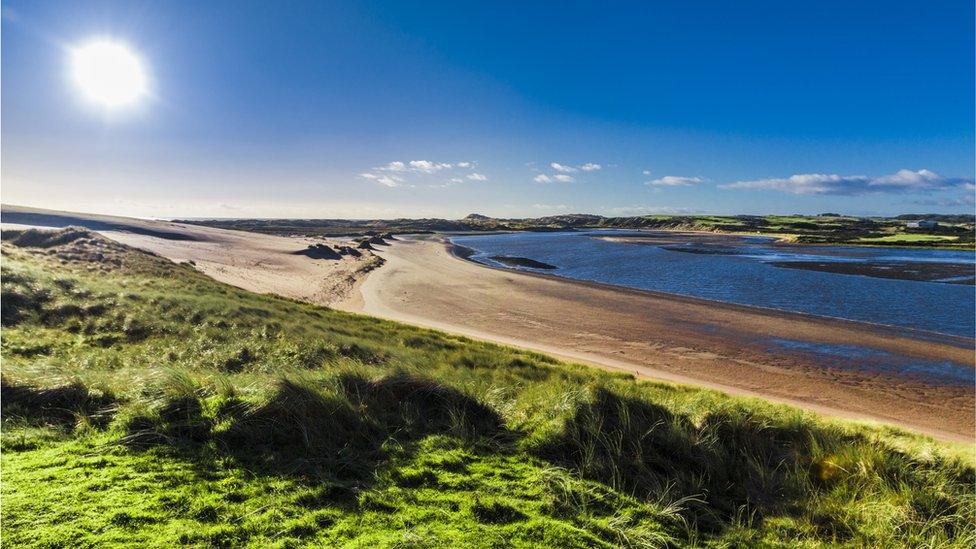Water scarcity risk increases in eastern Scotland
- Published

The River Ythan in Aberdeenshire is currently at a moderate scarcity level
The risk of water scarcity has increased in the east of Scotland, with more dry weather forecast for July.
The Scottish Environment Protection Agency (Sepa) has issued a warning that conditions are unlikely to improve in the next week.
Despite rainfall in recent days, the situation has deteriorated throughout June and into July, with very little rainfall forecast for the next week.
The majority of the east of Scotland remains in the "alert" category.
The River Ythan catchment in Aberdeenshire and the Firth of Tay have been put into moderate scarcity level due to very dry ground conditions and low river levels.
Areas around the River Irvine and River Ayr in Ayrshire are also now at the early warning stage, again due to low river levels. The majority of the east remains in alert.
The River Irvine is subject to an early warning alert
Businesses in alert areas which rely on water from the environment are advised to take action to ensure they are being efficient.
on staggering operations, reducing volumes and durations or suspending operations altogether.
It can also offer support on switching supplies, such as using groundwater instead of river water.
'Water is finite'
Michael Wann, water resources specialist at Sepa, said: "Water is a resource that underpins key industries across Scotland - from food and drink production, to farming and golf course management.
"All licensed abstractors must have a plan to deal with the range of conditions they experience throughout the year, including the current deteriorating water scarcity situation.
"Water is shared and finite, and we all need to work together to manage it as efficiently as possible. We want to work with businesses to plan long term for their usage so that we can preserve the resource as effectively as possible."
The latest report comes after Sepa warned in March about the growing threat of water scarcity this year as a result of a particularly dry winter.
It is also expected water scarcity will become a more frequent occurrence as a result of climate change.
Industries which rely on a consistent water source include farming, golf, whisky production, and hydropower energy.